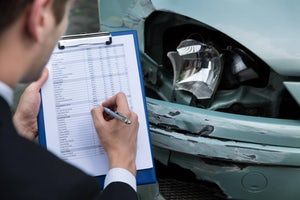As we head into wildfire season, here are a few tips to help your family stay safe and keep your home protected.
A surprising fact: Wildfire can happen in almost every state
While wildfire strikes more frequently in the West, nearly every state has been devastated by fires in the last century. And each year hundreds of homes are destroyed as more people choose to live closer to nature.
Know what your insurance covers and how much you need
Your insurance policy covers repair or rebuilding costs. If you can't live in your home, most companies will pay additional living expenses as provided in your policy--typically for up to 12 months. Review your policy for detailed coverage explanations.
Business owners should also consider business income insurance, which is designed to cover the costs of replacing lost profits, payroll and operating expenses if you are shut down while repairs are being made.
It is important that you review your insurance policy once a year to make sure you have enough coverage to rebuild based on current construction costs. We recommend you work with an independent appraiser to get a precise estimate, and make sure you talk to your agent about your building's unique features.
You can reduce the chance of losing to wildfire
No building is fireproof, but there are steps you can take to better the chances when wildfire strikes.
- Define your defensible space--a 30-foot, non-combustible zone around your home.
- Choose fire-resistant plants and trees.
- Remove or prune low hanging tree branches.
- Cut grass and weeds regularly and keep your roof and yard clean, especially from dry yard debris.
- Stack wood piles or other burnable materials at least 30 feet from your home or other buildings on your property.
- Keep signs and addresses visible so firefighters can easily locate your property.
- Rate your roof--is it fire resistant?
- Recycle yard debris and branches instead of burning.
When a wildfire strikes, protect yourself and your family
If a wildfire starts in your area, monitor local news reports for evacuation procedures. Prepare for evacuation by turning off gas valves and pilot lights, closing all windows and doors and packing your car for quick departure, if there is time and it is safe to do so. Return to a burned area only when local authorities have instructed you to do so.
Stay in Touch!
As your insurance partner, we want to make sure we can contact you and your family in the event of an emergency. In addition to your home address and landline, we'd like to have your e-mail addresses and cell phone numbers on file. You can update your records by calling 360-966-3732 or e-mail info@kelleyinsure.com










